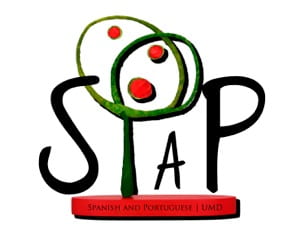VI Annual Graduate Student Conference on Latin America and the Caribbean
Imagining Culture, Past and Present
Thursday November 3 and Friday November 4
McKeldin Library
Special Events Room (6137)
Sponsored by the Latin American Studies Center
Featuring a Keynote Address by
Olivia Cadaval of the Smithsonian’s Center for Folklife and Cultural Heritage
Recent scholarship on Latin America has provided fresh takes on culture. Questioning monolithic views of the concept, scholars are asking how people imagine themselves simultaneously in relation to local, national, transnational, and global worlds. They are also rethinking forms of analysis that separate culture from economics and politics. They are looking, for instance, at the role of culture in economic and political practices and institutions; at consumption as a site where economics and culture intersect; at the role of political and economic practices in shaping creativity and the arts. Other scholars are rethinking culture itself as an analytical concept and its relation to categories such as gender, race, class, and ethnicity. This conference seeks to further interdisciplinary conversation on the theme of culture, from the pre-colonial period to the present day.
Conference Schedule
9:00-9:15
Karin Rosemblatt, Professor of History and LASC Director
Welcome Address
9:30-11:00
Creating Knowledge, Transforming Culture
Comment: Professor Judith Freidenberg, Dept. of Anthropology
Sarah Walsh, UMCP, “El Culto de la Verdad: The Relationship between Catholicism and Science in Early 20th Century Chile”
Rodrigo Magalhães, FIOCRUZ– Brazil, UMCP, “For a Hemisphere United and Free of Disease:
International Cooperation in Health in the Pages of the Boletín de la Oficina Sanitaria Panamericana
Margarita Farjardo, Princeton, “ECLA is not all about Structuralism: The Political Economy of Economic
Knowledge in Latin America”
11:15-12:45
Popular Culture in the Transnational Imagination
Comment: Juan Carlos Quintero-Herencia, Prof. and Chair, Dept. of Spanish and Portuguese
María José Navia, Georgetown University, “Ramificaciones de una identidad pop-moderna en The Brief and Wondrous Life of Oscar Wao”
Marcelo Boccato Kuyumjian, University of Illinois, Urbana-Champaign, “Conciliating Tradition and Modernity: Elis Regina Group and the Transformations of Samba”
Adam Fenner , American University, “Paradise Wasted: US Perceptions of Honduras Before 1933”
Reyna Esquivel-King , NYU, “Día de los Muertos: Race and Gender in From Dusk Till Dawn”
2:00-3:30
Remembering the Past, Shaping the Present: Research on Cultural Memory
Comment: Eyda Merediz, Professor of Spanish and Portuguese
Enrique Rivera, UMCP, “Silencing through Official Memory: UNESCO and the 1795 Coro Rebellion”
Yuridia Ramirez, Duke University, “Disguised Dissent?: The Memorialization of El Pípila in Postrevolutionary Guanajuato”
Robert Nathan, UNC Chapel Hill, “Yes, We Make Patriots”: Education, Memory, and Narratives of Nation in the Early Cuban Republic
Keynote Address 4:00pm
Olivia Cadaval, Smithsonian’s Center for Folklife and Cultural Heritage
“Encountering Imagined Culture”
Friday, Nov. 4
9:30-11:00
Looking at Visual Culture
Comment: Abigail McEwen, Professor of Art History
Corinna Zeltsman, Duke University, “Reprinted Revolution: The Prints of José Guadalupe Posada and the Creation of a Revolutionary Mexican Aesthetic, 1925-1930”
Daniel Richter, UMCP, “I Am a Photographer: Horacio Coppola and the Politics of Transnational Modernity in the 1930s and 2000s”
Marcio Siwi, New York University “U.S. – Brazil Cold War Relations and the Making of Modern Art Museums in São Paulo”
Linette Manrique, “Un Juan cualquiera: The Discourse of Mestizaje in a Mexican Telenovela (Corazón Salvaje)
11:15-12:45
Cultural Struggles and the Everyday
Comment: Talía Guzmán-González, Professor of Portuguese
Reid Gustafson, UMCP,“Pulque, Pederasts, and Paper Boys: Masculinity and the Culture of Working-Class Youths in Mexico City, 1917-1929”
Paola Reyes, Duke University, “Strategies of Resistance: Indigenous Opposition to Federal Rural Schools in Chiapas, 1934-1940”
Julia Eichstedt, Johns Hopkins University, “Lispector and Eltit: the Paradox of Self-Writing in the Hour of the Star and Mano de obra”
2-3:30
Spaces for Negotiating Culture
Comment: Daryle Williams, Professor of History
Heidi Krajewski , Tulane University, “Transnational Interactions in the U.S.-Nicaragua Solidarity Movement:A Case Study of the Nuevo Instituto de Centroamerica”
Raelene Wyse, NYU, “Making Spaces for Jewishness with Argentine and Chilean Cinema”
Julia Tomasini Maciel, UMCP, “Literatura y traducción en Internet: Proyecto web Brasil. Papeles sueltos.”
Closing Remarks: 3:30-3:45
